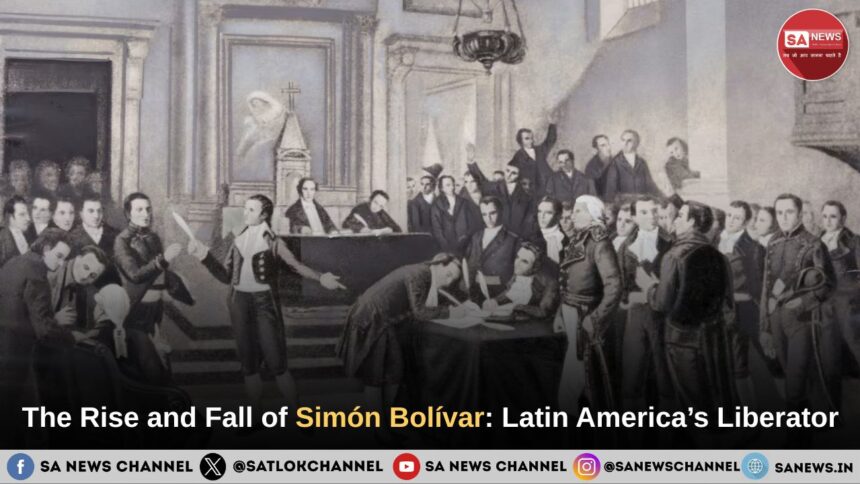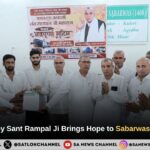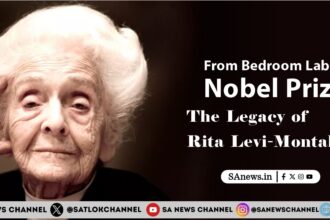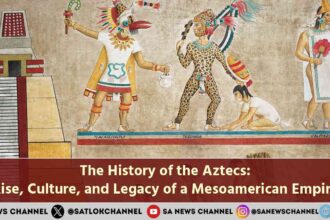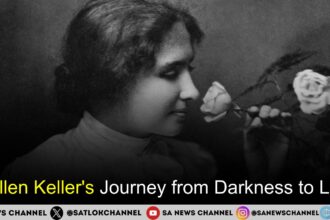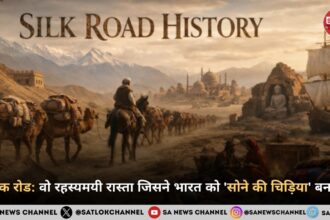Few figures in world history embody both the brilliance and tragedy of revolution as profoundly as Simón Bolívar, the Liberator of Latin America. A visionary general, philosopher and statesman, Bolívar led the independence movements that freed Venezuela, Colombia, Ecuador, Peru and Bolivia from Spanish rule, reshaping an entire continent’s destiny. Yet behind his military triumphs and heroic image lay a man tormented by political betrayal, failed unity and unfulfilled dreams. This article offers a deep historical analysis of Simón Bolívar’s life, achievements and legacy, tracing how his revolutionary ideals and political philosophy transformed Latin America while revealing the contradictions that defined his leadership.
- Simón Bolívar: The Liberator Who Changed Latin America
- A Brief Timeline of Key Life Events in Simon Bolívar’s life
- Driving Forces in Simón Bolívar’s Life
- A Burning Desire for Freedom
- Influence of Enlightenment Thinkers
- Emotional Resilience and Personal Tragedy
- Balancing Idealism and Realism
- Commitment Despite Disillusionment
- The Driving Forces in Essence
- Simón Bolívar’s Political Philosophy and Vision of Freedom
- Simón Bolívar: Hero or Tyrant?
- How South American Countries Remember Simón Bolívar
- Venezuela: The Homeland of El Libertador
- Colombia: The Pragmatic Hero
- Bolivia: The Nation That Bears His Name
- Ecuador: The Divided Memory
- Peru: The Reluctant Liberator
- Across Latin America
- Why Simón Bolívar Became Disillusioned
- The Gap Between Dream and Reality
- Political Chaos and Division
- Betrayal by His Own Supporters
- The Weight of Destiny
- Physical and Emotional Exhaustion
- Final Years and Death
- The Tragic Legacy
- Simón Bolívar Could Not Escape This, But You Can
- FAQs on Simón Bolívar
- Q1: Who was Simón Bolívar and why is he called El Libertador?
- Q2: What was Simón Bolívar’s vision for Latin America?
- Q3: Why did Simón Bolívar become disillusioned later in life?
- Connect With Us on the Following Social Media Platforms
Simón Bolívar: The Liberator Who Changed Latin America
More than two centuries later, Bolívar’s vision of unity and independence continues to inspire historians, leaders and citizens across the world. However, the seeds of Simón Bolívar’s philosophy and actions lie in his life events. Let us briefly explore some aspects.
Early Life and Influences of Simón Bolívar
Simón José Antonio de la Santísima Trinidad Bolívar y Palacios was born on 24th July 1783 in Caracas, Venezuela, into a prosperous Creole family of Spanish heritage. Although his childhood was one of privilege, it was also marked by great loss. He was orphaned at a young age and raised under the care of tutors and relatives. This early exposure to both comfort and fragility gave Bolívar a complex understanding of wealth, power and human vulnerability.
His education was shaped by Enlightenment ideals and he became deeply influenced by the works of Rousseau, Voltaire and Montesquieu, whose philosophies challenged the legitimacy of monarchy and colonial oppression. These teachings planted the seeds of rebellion in Bolívar’s mind, convincing him that freedom was a right, not a privilege.

In his youth, Bolívar travelled through Spain, France and Italy, where he observed the aftermath of revolutions and the crumbling authority of European empires. During a visit to Rome in 1805, he famously swore an oath to liberate his homeland from Spanish control – a promise that defined the rest of his life.
This blend of intellectual influence, personal loss and exposure to global change shaped Bolívar into more than a soldier. It made him a visionary. His belief in justice, unity and self-governance became the foundation of his lifelong struggle to free Latin America from colonial rule.
It is important to note that from the birth of Gran Colombia to the disillusionment of his final years, Bolívar’s journey exposes the complex struggle between freedom and power, idealism and reality. It also raises some important questions about who really governs our life, and can we actually write our own destiny?
Relevance of Simon Bolívar’s History
The biography of Simón Bolívar remains profoundly relevant today, offering timeless lessons on leadership, freedom and human struggle. Known across the world as ‘El Libertador’ – The Liberator of South America, Bolívar was not only a revolutionary general but also a visionary who redefined the meaning of independence and unity in the Latin American world.
- The Great Liberator and His Achievements: Through a series of extraordinary military campaigns, Bolívar led the liberation of Venezuela, Colombia, Ecuador, Peru, and Bolivia. His strategic brilliance and unshakable conviction dismantled centuries of Spanish colonial rule, changing the political destiny of an entire continent. It is for this monumental contribution that he continues to be revered as the Liberator of Latin America.
- Bolívar’s Dream of a United Latin America: Beyond the battlefield, Bolívar envisioned a unified Latin America – a powerful federation known as Gran Colombia, which could resist foreign domination and uphold regional solidarity. Although this dream ultimately dissolved due to internal divisions, Bolívar’s vision is considered as an inspiration for modern movements advocating for regional cooperation and integration across Latin America.
- Influence of Enlightenment Ideals: Bolívar’s revolutionary thinking was deeply rooted in the Enlightenment principles of liberty, equality and republicanism. Influenced by philosophers like Rousseau and Montesquieu. He sought to translate these European ideals into a Latin American context by creating governments founded on justice and the will of the people. His ideas helped shape the democratic foundations of several nations that once lived under colonial oppression.
- An Enduring Symbol of Freedom: Despite political setbacks, betrayals and the eventual collapse of his vision for a united continent, Simón Bolívar is viewed as an enduring symbol of freedom and resistance. His life is considered as a reminder that the struggle for justice and equality is never without sacrifice.
The relevance of Simón Bolívar’s biography goes far beyond historical triumphs. His life invites us to confront deeper philosophical questions that aren’t emphasised enough in our ordinary world:
- Can freedom ever be absolute or eternal?
- Is it possible for humanity to truly change its destiny? How is one’s destiny decided and who decides it?
- Bolívar dedicated his existence to the cause of liberty, yet he also witnessed how fragile freedom can be. His journey forces us to reflect not only on the fate of nations but on the nature of human struggle itself.
This article seeks to go beyond history, to explore the unspoken dimensions of Simón Bolívar’s life, and bring forward unexplored facets of human life that are never emphasised and realised enough in our ordinary world. Let us now look at a brief timeline of Simón Bolívar’s life and how it shaped him.
A Brief Timeline of Key Life Events in Simon Bolívar’s life
The internet is flooded with information about Simón Bolívar’s biography. While it is difficult to encapsulate it completely, here is a brief timeline of Simón Bolívar’s life and how it shaped him:
- 24 July 1783: Simón Bolívar was born in Caracas, Venezuela, into a wealthy Creole family. His early exposure to Spanish colonial rule and social inequalities sowed the first seeds of his revolutionary convictions.
- Childhood and Early Loss (1786-1799): Bolívar lost both parents young – his father in 1790 and mother in 1792. Raised by relatives and private tutors, he developed self-reliance and introspection. These formative years instilled in him a belief that his life carried a greater purpose.
- Education in Europe (1799-1802): Sent to Spain and later to France, Bolívar received a refined education steeped in Enlightenment thought. He studied philosophers such as Rousseau, Voltaire and Montesquieu, and observed Napoleon’s rise to power. While inspired by Napoleon’s brilliance, Bolívar became cautious of dictatorship. These experiences shaped his conviction that liberty required moral leadership and constant vigilance.
- Early Adulthood and Personal Tragedy (1802-1807): Returning to Venezuela, Bolívar joined the elite social circles of Caracas. In 1802, he married María Teresa Rodríguez del Toro y Alayza. Her sudden death from yellow fever the following year devastated him. He redirected his ambitions toward a greater mission – the liberation of his homeland.
- Political Awakening (1807-1810): Travelling across Venezuela, Bolívar witnessed first-hand the injustices of colonial administration. By 1810, when the Venezuelan independence movement began, he had fully committed himself to the revolutionary cause.
- First Campaigns and Setbacks (1810-1814): Bolívar led several early military efforts to liberate Venezuela but faced repeated defeats. The fall of Caracas in 1812 forced him into exile. These struggles taught him that freedom demands resilience, organisation and sacrifice beyond idealism.
- The Admirable Campaign and the Decree of War to the Death (1813): In 1813, Bolívar returned triumphantly to Venezuela, leading the Admirable Campaign that liberated Caracas. He issued the ‘Decree of War to the Death’, promising mercy to patriots but severe punishment to Spanish loyalists.
- Exile and Reflection (1814-1816): Defeated again, Bolívar sought refuge in Jamaica and Haiti. During this period, he wrote the famous *Jamaica Letter*, expressing his vision of a free and united Latin America. Support from Haiti provided him with arms and soldiers, enabling his eventual return to battle. Exile refined his political philosophy and strategic insight.
- Military Triumphs and Leadership (1817-1821): Bolívar returned to Venezuela to lead decisive campaigns that changed South American history. Victories such as the Battle of Carabobo (1821) secured Venezuelan independence. His reputation grew as a military genius and visionary statesman. He began to pursue his dream of uniting the liberated nations under a single federation called Gran Colombia.
- The Andes Campaign and Liberation of Ecuador (1822): Bolívar’s crossing of the Andes stands among history’s most daring military feats. His forces liberated Ecuador after the Battle of Pichincha in 1822. These victories reinforced his belief that courage and determination could overcome even the most daunting obstacles. This statement is important to note for it will later contradict his own life and learnings.
- Liberation of Peru and the End of Spanish Rule (1824): Bolívar’s forces, alongside General Antonio José de Sucre, defeated the Spanish at the Battle of Ayacucho in 1824. With this victory, Spanish colonial power collapsed in South America and Bolívar emerged as the continent’s supreme liberator.
- Founding of Bolivia (1825): Upper Peru became the independent Republic of Bolivia, named in Bolívar’s honour. He drafted its constitution, advocating a strong but moral executive branch. However, his centralising tendencies drew criticism, marking the beginning of internal dissent.
- Challenges of Gran Colombia (1826-1828): Bolívar struggled to hold Gran Colombia together amid regional rivalries and political unrest. The infamous ‘September Conspiracy’ of 1828 attempted to assassinate him, yet he survived. These years exposed the tension between his ideals of freedom and the practical demands of leadership.
- Resignation and Death (1830): Weary of political conflict and disillusioned by the collapse of Gran Colombia, Bolívar resigned from the presidency. Planning to retire in Europe, he fell ill and died on 17 December 1830 in Santa Marta, Colombia, aged 47. He was impoverished but immortalised as a liberator.
Key Insights from Bolívar’s Life
- Early personal loss instilled emotional strength and purpose.
- European education shaped his Enlightenment-based ideals of liberty and governance.
- Exile periods deepened his reflection, leading to visionary political philosophy.
- Military campaigns demonstrated that freedom demands courage, strategy and sacrifice.
- Political struggles revealed the fragile balance between democracy and authority.
- Bolívar transformed an entire continent, leaving a lasting imprint on freedom movements across Latin America.
- However, in the end, neither his purpose nor his determination could survive disillusionment.
Driving Forces in Simón Bolívar’s Life
This analysis provides a background into what drove Simón Bolívar to struggle immensely for the freedom of his people and how it shaped his psychology.
A Burning Desire for Freedom
Bolívar grew up under the strict control of Spanish colonial rule. He witnessed the oppression of local populations, the denial of self-governance, and the systemic discrimination against Creoles (people of Spanish descent born in the Americas). These early experiences instilled in him a profound sense of injustice and a relentless drive for liberation.
Also Read: Guglielmo Marconi Biography: The Father of Wireless Communication
He once wrote: ‘I have sworn before the altar of God to never rest until the chains of my people have been broken’.
This statement highlights how deeply personal and sacred Bolívar considered his mission to free South America. His life was guided by an unwavering commitment to liberty and justice.
Influence of Enlightenment Thinkers
Bolívar’s education in Europe exposed him to the works of Rousseau, Voltaire and Montesquieu, whose ideas on liberty, equality and natural rights shaped his revolutionary mindset. He also observed Napoleon Bonaparte’s rise to power, recognising how a single determined individual could alter the destiny of nations. Unlike Napoleon, Bolívar sought to achieve greatness through emancipation rather than conquest.

These experiences reinforced his belief that political independence was a moral duty and essential for human dignity, motivating him to dedicate his life to the liberation of Latin America.
Emotional Resilience and Personal Tragedy
Bolívar’s early orphanhood and the death of his young wife deeply affected him. Instead of succumbing to despair, he transformed personal grief into a larger purpose. He once reflected: ‘The only thing that can console me for having lost my happiness is to see my country free’.
Balancing Idealism and Realism
Bolívar was both a visionary and a strategist. While he dreamed of a united Latin America, he was acutely aware of political fragmentation, regional rivalries and cultural divisions. His correspondence and speeches reveal constant reflection and adaptation – a balance between lofty ideals and practical governance. He believed that liberty must coexist with order and education to prevent nations from descending into chaos.
Commitment Despite Disillusionment
Toward the end of his life, Bolívar faced disillusionment as his vision of continental unity faltered and political allies betrayed him. He remarked: ‘He who serves a revolution ploughs the sea’.
This statement highlights his unwavering commitment to ideals, even when success seemed impossible.
The Driving Forces in Essence
The driving forces in Simón Bolívar’s life were a combination of idealism, moral conviction and emotional resilience. He was propelled by justice, compassion and a profound sense of destiny, believing that his role was to liberate South America, no matter the personal cost. What exact role destiny played is a matter of deep deliberation and can be decoded solely by the spiritual wisdom of a Complete Saint (Tatvdarshi Sant).
Simón Bolívar’s Political Philosophy and Vision of Freedom
Simón Bolívar’s approach to leadership was defined by a profound commitment to liberty, justice and the moral responsibility of power. Unlike many leaders of his era who sought greatness through conquest, Bolívar pursued it through liberation, guided by intellectual, moral and personal influences, as we have analysed thus far.
Bolívar lived in a world dominated by conquerors – European empires and figures like Napoleon Bonaparte. But he rejected the pursuit of power for its own sake. While he admired strategic brilliance, he opposed tyranny, insisting that freedom must be restored, not replaced by another form of domination.
Influenced by Enlightenment thinkers such as Rousseau and Voltaire, Bolívar believed that all humans are born free and that governments exist to protect this liberty. For him, liberation was not merely a political act, but a moral duty that restored dignity to oppressed peoples. Conquest, in contrast, would perpetuate the cycle of oppression.
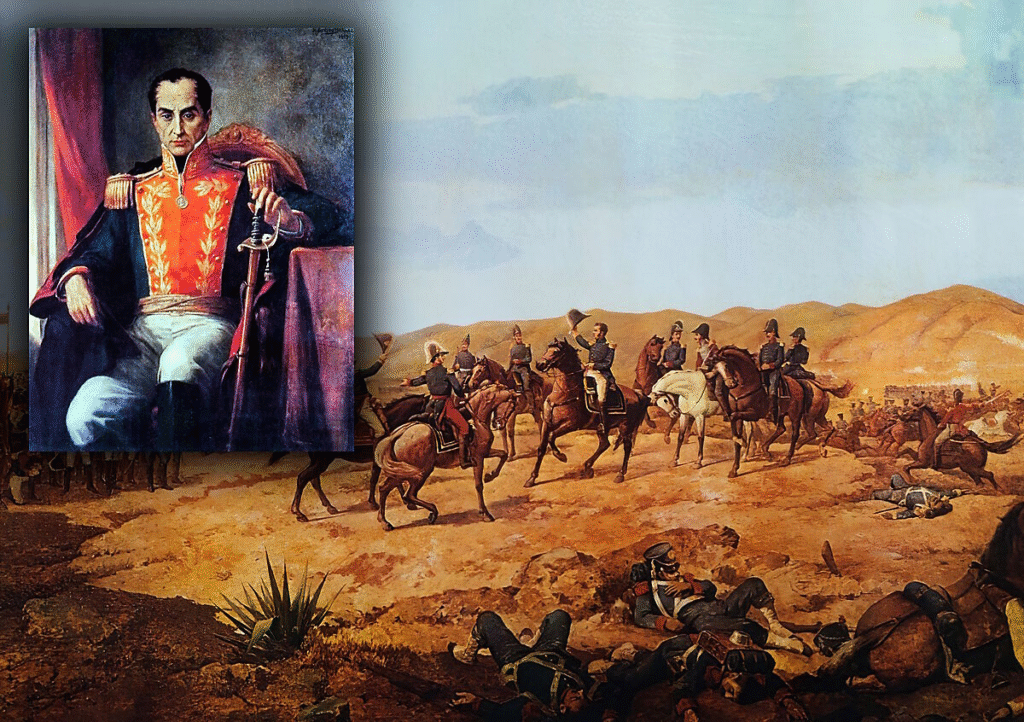
Personal tragedy, including the early loss of his parents and the death of his wife, deepened Bolívar’s empathy and strengthened his resolve. These experiences shaped a leader motivated by justice and collective wellbeing rather than personal gain. He saw himself as a servant of a higher cause, dedicating his life and fortune to the independence of South America.
Bolívar’s vision extended beyond liberation. He dreamed of a united Latin America, a federation capable of preserving freedom while balancing justice and governance. He warned that liberty without moral responsibility could collapse into tyranny.
In a nutshell, Bolívar’s political philosophy combined idealism and pragmatism. He sought greatness not through domination, but through the empowerment of others. However, is Simón Bolívar’s sacrifice and his ideals viewed today as a symbol of hero or a tyrant? This is the most fascinating paradox in history.
Simón Bolívar: Hero or Tyrant?
Simón Bolívar remains one of history’s most complex figures. Celebrated as a liberator across Latin America, he was also criticised during his lifetime and afterwards, even labelled as a tyrant by some. Let us uncover both perspectives.
Why Bolívar Is Admired
Bolívar is revered for his unparalleled contributions to freedom and independence:
- Liberator of Nations: He led revolutionary armies across vast distances and difficult terrains such as mountains, jungles and deserts, to secure independence for Venezuela, Colombia, Ecuador, Peru and Bolivia. Few leaders have reshaped an entire continent so profoundly.
- Moral Leadership: Bolívar devoted his personal wealth to the cause of independence, living and dying in relative poverty. His dedication to ideals rather than personal gain earned him lasting admiration.
- Vision of Equality and Education: He sought to establish societies grounded in justice, civic responsibility and education. His forward-thinking vision anticipated principles that continue to influence modern governance in Latin America.
- Symbol of Latin American Identity: Bolívar became a unifying symbol of liberty and self-determination. Cities, streets, schools and even the country of Bolivia bear his name. This reflects the deep, enduring impact of his leadership.
Why Some Viewed Him as a Tyrant
Bolívar’s later years demonstrated the tension between authority and freedom, leading critics to label him authoritarian:
- Extraordinary Powers to Maintain Unity: In the unstable post-independence period, Bolívar sometimes ruled by decree, suspending parts of constitutions to preserve national cohesion. Opponents viewed these actions as a betrayal of democratic principles.
- Centralisation of Authority: When regional leaders or factions resisted his vision, Bolívar disbanded assemblies or imposed directives, which critics interpreted as autocratic behaviour.
- Collapse of Gran Colombia: His dream of a unified federation ‘Gran Colombia’ ultimately failed due to regional rivalries. Some accused him of overreaching ambition and suggested he sought to become a continental monarch.
- Aware of the Contradiction: Bolívar recognised the delicate balance between liberty and authority, stating, ‘Liberty is not secured when the people are not educated’. He believed that temporary strong leadership was necessary until societies were ready for self-government. This is a stance that remains controversial till date.
- Reconciling Heroism and Authority: Bolívar embodied both idealism and pragmatism. He sought to safeguard fragile new nations emerging from centuries of oppression while navigating political, social, and military challenges. His efforts to balance freedom with order often placed him in positions that resembled the very authority he opposed.
Historical Legacy of Simón Bolívar
Today, Bolívar is celebrated as a tragic hero – a visionary who sacrificed everything for liberty. While acknowledging his flaws, historians recognise his profound role in shaping Latin America. His historical legacy endures not because he was perfect, but because he dared to envision and partially realise a free continent.
How South American Countries Remember Simón Bolívar
Simón Bolívar’s legacy resonates differently across the nations he helped liberate. His image is shaped by local history, politics and cultural memory, making him a figure of admiration, debate and inspiration. Examining each country’s perspective provides insight into how one man’s vision has been interpreted across Latin America. It also helps us understand how these countries think of Simón Bolívar who sacrificed his life for their freedom.
Venezuela: The Homeland of El Libertador
As Bolívar’s birthplace, Venezuela regards him as a national icon. His image appears on currency, in schools, government institutions and public monuments. Venezuelans grow up learning about his courage, speeches and battles, integrating Bolívar into the country’s national identity.
Modern politics has further amplified his symbolic status. Leaders like Hugo Chávez invoked Bolívar’s ideals in the ‘Bolivarian Revolution’, using his legacy to promote social justice and anti-imperialist policies, though this political appropriation remains debated.
In essence, Venezuela views Bolívar as a father figure of the nation – immortal, virtuous and inseparable from its identity.
Colombia: The Pragmatic Hero
Colombia was central to Bolívar’s vision of Gran Colombia and Bogotá served as his political headquarters. Colombians honour him with statues, universities and cities bearing his name, but their perception is more measured than in Venezuela.
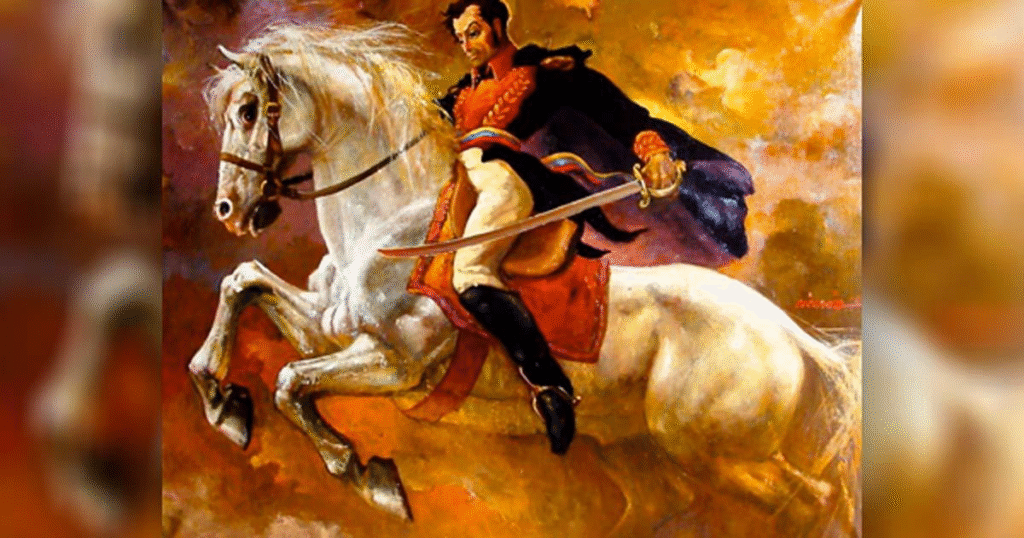
While celebrated as a liberator and nation-builder, Colombians also recall the political instability and tensions during his rule. His attempts to maintain unity sometimes involved strong central authority, which critics interpreted as authoritarian.
In Colombia, Bolívar is remembered as a brilliant military strategist and political founder, yet also as a flawed human navigating immense challenges.
Bolivia: The Nation That Bears His Name
Bolivia’s very name honours Bolívar, acknowledging his role in the country’s independence and his vision for its early constitution. While he spent limited time in the territory, his influence as a symbolic founder remains strong.
In Bolivia, Bolívar is celebrated as a visionary statesman and a unifying figure whose name embodies national pride and independence.
Ecuador: The Divided Memory
Bolívar played a decisive role in Ecuador’s liberation, yet local heroes such as Antonio José de Sucre also share the spotlight. While Ecuadorians respect Bolívar for his military contributions, his legacy is intertwined with the achievements of other independence leaders.
Ecuador regards him as a significant liberator, but not the sole symbol of national independence.
Peru: The Reluctant Liberator
Bolívar’s campaigns in Peru ended Spanish colonial rule but were politically contentious. He often had to impose authority to maintain order, leading some Peruvians to perceive him as an outsider or authoritarian figure. Over time, however, he has been commemorated as a pivotal architect of independence, even if his political methods remain debated.
Peru remembers Bolívar as a liberator who completed independence, though his governance sparks discussion.
Across Latin America
Beyond individual nations, Bolívar has become a symbol of unity, emancipation and regional identity for all of Latin America. His vision of cooperative, free nations continues to inspire political movements, social reforms and ideas of continental solidarity into the 21st century.
Why Simón Bolívar Became Disillusioned
Simón Bolívar’s life is a story of extraordinary achievement shadowed by profound disillusionment. Despite liberating much of South America from Spanish rule, he struggled to translate freedom into lasting unity and justice. A truly profound question that goes right to the heart of Bolívar’s tragedy – What disillusioned Simón Bolívar? He won freedom for an entire continent, yet died disillusioned, abandoned and heartbroken. Let us understand why this happened.
The Gap Between Dream and Reality
Bolívar envisioned not only independence but also a united federation ‘Gran Colombia’ comprising Venezuela, Colombia, Ecuador, Panama and potentially Peru and Bolivia. Inspired by Enlightenment principles and the American Revolution, he imagined a continent bound by liberty, equality and shared destiny.
Yet independence revealed a harsh truth: freedom alone could not forge unity. Regional leaders pursued personal power, local elites resisted centralised governance, and competing ambitions fractured the dream. Bolívar famously reflected: ‘He who serves a revolution ploughs the sea’, capturing the futility he often felt. Why do humans pursue futile ambitions so hard, instead of truly understanding the real purpose of a human birth?
Political Chaos and Division
The former colonies had been united only by their opposition to Spain. Once the common enemy was gone, divisions emerged. Personal ambition, class conflict and regional rivalries tore the nations apart. Bolívar struggled to impose order, but efforts to centralise authority drew accusations of dictatorship. This left him caught between idealism and political necessity.
Betrayal by His Own Supporters
Even those who once hailed him as a liberator turned against him. When Bolívar assumed the symbolic role of President-for-Life of Bolivia, some feared he sought absolute power. Allies like Francisco de Paula Santander opposed his governance. Assassination attempts, including the infamous ‘September Conspiracy’ of 1828 in Bogotá, forced Bolívar to confront the bitter irony – the people he freed now viewed him as a tyrant.
The Weight of Destiny
Bolívar carried the almost messianic burden of being South America’s ‘saviour’. He believed he was chosen by history to deliver freedom, but the expectations exacted a heavy toll. Every failure felt personal, every rebellion a betrayal, every compromise a moral defeat. In his own words: ‘I have been the victim of my own ambition. The world has seen me at its highest point – now it will see me descend into oblivion’.
Who is a True Saviour? The one who saves humanity from physical invaders, or the one who reveals the root source of all misery in this world?
Physical and Emotional Exhaustion
Years of continuous warfare, disease and political betrayal left Bolívar physically drained and emotionally exhausted. He lost key allies, including his loyal general Antonio José de Sucre, and grew increasingly isolated. In despair, he wrote: ‘America is ungovernable. Those who served the revolution have ploughed the sea’.
Final Years and Death
Disillusioned, Bolívar resigned as President in 1830, intending to go into exile in Europe. Instead, he died that same year at age 47 in Santa Marta, Colombia, poor, broken and bitterly reflective: ‘They have left me alone, in the presence of the universe, with only my fame for a shroud’.
The Tragic Legacy
Bolívar’s disillusionment stemmed from the collision of vision and reality. He dreamed of a free, unified continent, yet faced division, ambition and corruption. Though he reshaped the map of South America, he could not conquer the human tendencies that undermined his ideals. His life is a cautionary tale of leadership, ambition and the limits of even the greatest revolutionary. However, the most significant point is always missed. Simón Bolívar was a man who conquered empires but could not master ‘destiny’. This leads us back to several questions we raised through this article. Who is truly the controller of our destiny?
Simón Bolívar Could Not Escape This, But You Can
For centuries, humanity has been led to believe that we write our own destiny. This is a profound misconception. Human life is granted only once in 8.4 million lifetimes. Jagatguru Tatvdarshi Sant Rampal Ji Maharaj reveals that the course of every human life is determined by the accumulation of good and bad karma from all previous births. Good karma brings temporary happiness, wealth and recognition, while bad karma results in setbacks, suffering and misfortune.
All beings in this mortal world are trapped within the 21-universe dominion of Kaal Brahm, known as Satan in popular culture. He is the root cause of chaos, suffering and the endless cycle of birth and death. His schemes ensure that souls remain bound to the material world, unable to attain true liberation.
Even a determined and visionary figure like Simón Bolívar could not escape the grasp of Kaal Brahm. Manipulating the human mind, Kaal influenced actions and ambitions, leading Bolívar into the relentless struggle for freedom in the mortal realm – a struggle that ultimately could not liberate him from life’s deeper illusions. True freedom is not political or worldly, instead, it is the complete liberation from the cycle of birth and death, attainable only through the guidance of a Tatvdarshi Sant.
A Tatvdarshi Sant alone possesses the spiritual authority to guide seekers toward ultimate salvation. Bolívar’s life, while heroic in the worldly sense, serves as a profound reminder that without authentic spiritual guidance, even the greatest leaders remain trapped in the illusions of mortal existence. Only through devotion and proper worship of Supreme God Kabir, as instructed by a Tatvdarshi Sant, can one escape the cycle of suffering and attain eternal liberation.
The true purpose of human life is to engage in the authentic worship of Supreme God Kabir under the guidance of a Tatvdarshi Sant. Neglecting this sacred duty traps the soul in the endless cycle of 8.4 million lifetimes, making all other pursuits meaningless in comparison. Failing to seize this rare and golden opportunity is the greatest folly of life.
Discover how to overcome the root causes of suffering through the profound spiritual knowledge of Sant Rampal Ji Maharaj, the singular Tatvdarshi Sant of our times, and find the path to eternal freedom. To know more, visit:
- Website: www.jagatgururampalji.org
- YouTube: Sant Rampal Ji Maharaj
- Facebook: Spiritual Leader Saint Rampal Ji
- X (Twitter): @SaintRampalJiM
FAQs on Simón Bolívar
Q1: Who was Simón Bolívar and why is he called El Libertador?
Answer: Simón Bolívar was a revolutionary leader who liberated Venezuela, Colombia, Ecuador, Peru and Bolivia from Spanish rule, earning the title ‘El Libertador’.
Q2: What was Simón Bolívar’s vision for Latin America?
Answer: Bolívar envisioned a united federation of Latin American nations, known as Gran Colombia, built on liberty, equality and regional cooperation.
Q3: Why did Simón Bolívar become disillusioned later in life?
Bolívar became disillusioned due to political divisions, betrayal by allies, and the collapse of his dream of a united South America.


